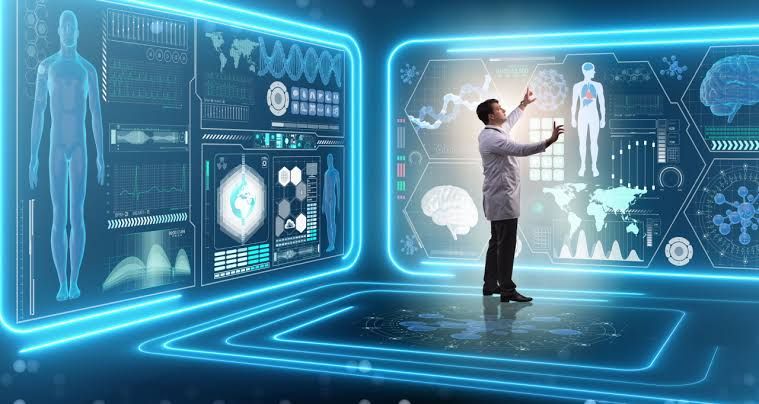AI: A Double-edged Sword - Unveiling the Winners and Grappling with the Risks
As we delve deeper into the 21st century, artificial intelligence (AI) continues to evolve, promising an era of unprecedented innovation and transformation. The potential benefits of AI are vast, impacting sectors from healthcare to education and entertainment. Yet, as with any technological breakthrough, it presents its own set of challenges

As we delve deeper into the 21st century, artificial intelligence (AI) continues to evolve, promising an era of unprecedented innovation and transformation. The potential benefits of AI are vast, impacting sectors from healthcare to education and entertainment. Yet, as with any technological breakthrough, it presents its own set of challenges and risks. Understanding the beneficiaries of AI and the potential hazards it poses is key to successfully navigating this transformative period.
Industries across the spectrum, from large corporations to small startups, stand to gain enormously from AI. In healthcare, AI has the potential to revolutionize patient care and research, with machine learning algorithms being used to predict disease outcomes, optimize treatment plans, and even assist in complex surgeries. Retail companies can leverage AI for personalized marketing, inventory management, and predictive analytics to enhance customer experience and boost sales. In the manufacturing sector, AI-powered robots can improve productivity and efficiency, reducing costs and time-to-market for products.
Perhaps most intriguingly, the education sector could witness significant changes. AI can enable personalized learning experiences, tailoring education to each student's needs, enhancing engagement and outcomes. Teachers can use AI to identify gaps in learning, allowing for targeted intervention. Moreover, AI can help democratize education by making quality learning resources accessible to remote or underprivileged communities.
However, it's not just industries that stand to benefit. Consumers will likely see improvements in the quality, convenience, and personalization of products and services. From AI-assisted home appliances to personalized content recommendations, AI's potential to improve daily life is vast.
Nevertheless, as with all powerful technologies, AI comes with considerable risks. Among the most pressing is the potential for job displacement. As AI systems become more capable, they may replace humans in a variety of jobs, particularly those involving repetitive or predictable tasks. The World Economic Forum estimates that by 2025, AI and automation could displace 85 million jobs globally. Although new jobs will be created, the transition may be painful for many, particularly for those without the necessary skills to pivot into new roles.
Furthermore, the power and potential misuse of AI pose significant ethical and privacy concerns. AI algorithms, particularly in surveillance and data collection, can lead to an invasion of privacy and the potential misuse of personal data. Ethical dilemmas also arise when we consider AI in decision-making processes, such as in law enforcement or hiring, where biases in training data can lead to unfair outcomes.
AI can also be used in malicious ways, from deepfake videos that distort reality, to AI-powered cyber-attacks that can outsmart traditional security measures. Moreover, the concentration of AI power in the hands of a few tech giants raises concerns about monopolies and lack of competition.
Navigating these risks will require forward-thinking policies and robust regulatory frameworks. Transparency in AI algorithms can mitigate some of these risks, making the decision-making process more understandable and accountable. Education and re-skilling programs can help workers adapt to the changing job market. Strong privacy laws and ethical guidelines will also be essential to protect individuals.
In conclusion, AI promises a future filled with remarkable possibilities but also significant challenges. While industries, consumers, and society at large stand to benefit, the associated risks demand careful consideration and proactive action. The path forward must be a balanced one, maximizing AI's potential while safeguarding against its risks. As we embrace the AI revolution, it's clear that our approach to this transformative technology will shape not only our industries and economies, but the very fabric of our society.




